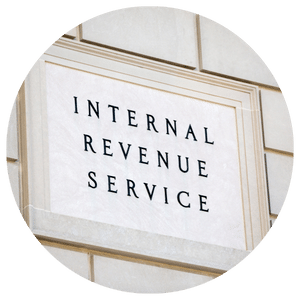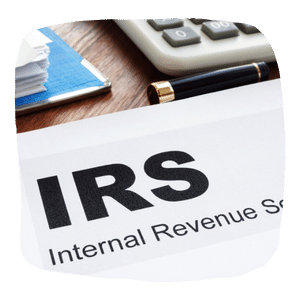Written By: MB Group
Dealing with IRS notices can be a nerve-wracking experience for many individuals. When that unexpected envelope from the Internal Revenue Service (IRS) arrives in your mailbox, it's natural to wonder, "Why did I get a notice from the IRS?" In this blog, we'll explore the various reasons why the IRS sends out notices and provide you with valuable insights on how to respond to them effectively.
One of the most common reasons you might receive a notice from the IRS is if you have a balance due. This notice indicates that you owe the IRS money, and it typically includes details about the amount owed, the due date, and payment options. If you find yourself in this situation, don't panic. You have several options, such as setting up a payment plan or negotiating a settlement.
balance due. This notice indicates that you owe the IRS money, and it typically includes details about the amount owed, the due date, and payment options. If you find yourself in this situation, don't panic. You have several options, such as setting up a payment plan or negotiating a settlement.
Balance due notices typically result from situations where the taxpayer has underreported their income, failed to pay estimated taxes, or owes penalties and interest. When you receive a balance due notice, it's essential to take the following steps: Carefully review the notice and verify the amount owed, explore payment options, contact the IRS if you believe there's an error or need more time to pay, and address the issue promptly to prevent further penalties and interest.
Sometimes, the IRS might notify you that you are due a larger or smaller refund than you initially expected. This can happen due to errors on your tax return or changes in your financial circumstances. It's essential to review these notices carefully and follow the provided instructions to ensure you receive the correct refund amount.
Refund notices can be triggered by errors on your tax return, changes in your financial situation (e.g., unreported income or deductions), or adjustments made by the IRS. Here's what to do if you receive a refund notice:
Thoroughly review the notice and compare it to your tax return, ensure the IRS's adjustments are accurate and reflect your financial situation, and follow the provided instructions to claim your refund or address discrepancies.
Receiving a notice from the IRS indicating that they have questions about your tax return can be unsettling. These inquiries can range from missing documentation to discrepancies in reported income. The key is to respond promptly with the requested information to address their concerns.
The IRS might have questions about your tax return due to missing or unclear documentation, discrepancies in reported income or deductions, or potential red flags in your return. When you receive a notice with questions about your tax return, read the notice carefully and understand the specific issues the IRS is inquiring about, gather the requested information, and respond promptly, maintaining open communication with the IRS to resolve any concerns.
Protecting your identity is vital in today's digital age. The IRS may send you a notice requesting identity verification if they suspect potential fraud or identity theft. This is a preventive measure to ensure that your tax return is filed by the correct individual. Follow the steps outlined in the notice to verify your identity and protect your financial security.
Identity verification notices are typically sent to prevent fraud and unauthorized tax return filings, protect taxpayers from identity theft, and ensure the accuracy of tax returns. When you receive an identity verification notice, follow the provided instructions to verify your identity, ensure your personal information matches what's on your tax return, and safeguard your personal information to prevent identity theft.
Sometimes, the IRS may need additional information to process your tax return accurately. This could involve supporting documents, receipts, or explanations for specific deductions. Provide the requested information promptly to avoid delays in processing your return.
Additional information requests from the IRS may occur due to missing or incomplete documentation, unclear deductions or claims, or a need for further clarification. When you receive a request for additional information, read the notice carefully and understand what's needed, gather and submit the requested information promptly, and keep a copy of your submission for your records.
 Receiving an adjusted refund notice from the IRS may initially seem perplexing, but it doesn't necessarily indicate any wrongdoing. These notices can be triggered by reasons such as mathematical errors, outstanding debts, or using your refund to offset existing liabilities. The IRS often labels their notices with codes like "CP" followed by a unique number, pinpointing the purpose of the adjustment.
Receiving an adjusted refund notice from the IRS may initially seem perplexing, but it doesn't necessarily indicate any wrongdoing. These notices can be triggered by reasons such as mathematical errors, outstanding debts, or using your refund to offset existing liabilities. The IRS often labels their notices with codes like "CP" followed by a unique number, pinpointing the purpose of the adjustment.
While receiving mail from the IRS can be unsettling, many taxpayers receive such notices every year, with adjustments made for various reasons. These notices generally detail which aspects of your return are being changed, what information the IRS requires, why the adjustment is necessary, and when, if necessary, you should respond. Responding to these notices typically involves reading them carefully, responding promptly if required, and maintaining records of all tax-related documents. In case the IRS made a mistake, providing additional documentation is crucial. Furthermore, if you need to make corrections to a tax return, you can file an amended return to address errors or claim a more favorable refund.
If your tax return is experiencing delays in processing, the IRS will send you a notice to inform you of the situation. Understanding the reasons for these delays, such as missing information or a high volume of returns, can help you manage your expectations. You can also check the status of your return online to stay informed.
Processing delays may occur due to missing or incomplete documentation, high volumes of tax returns during peak filing seasons, or IRS processing system issues. When you receive a processing delay notice, understand the reasons for the delay as stated in the notice, check the status of your return online for updates, and be patient and proactive, as delays can sometimes take time to resolve.
Receiving an IRS notice can make you uneasy, but understanding the reasons behind these notifications is the first step toward addressing them effectively. Whether it's a balance due, refund notice, or a request for additional information, proactive and timely responses can help you navigate these situations with confidence.
Remember, you're not alone in this process, and seeking professional guidance when needed can make a significant difference in resolving IRS matters while maintaining your financial well-being. The MB Group team is here to help so be sure to contact us if you're in need.
Read More: Amended vs Superseded Tax Returns: What's The Difference?
Tags: Taxes
The current administration has recently introduced a series of tariffs targeting key imports from 90 countries, sparking widespread discussion about the effects of tariffs on the U.S. economy. These...
Read MoreAs a business owner, you wear many hats and have a lot on your plate. With so much to consider, it's easy to make mistakes. But some mistakes can be much more costly than others, especially when they...
Read MoreNew tariffs on imports are putting pressure on manufacturers in 2025—raising costs, tightening margins, and creating new challenges for supply chains and financial planning. With rates as high as...
Read More